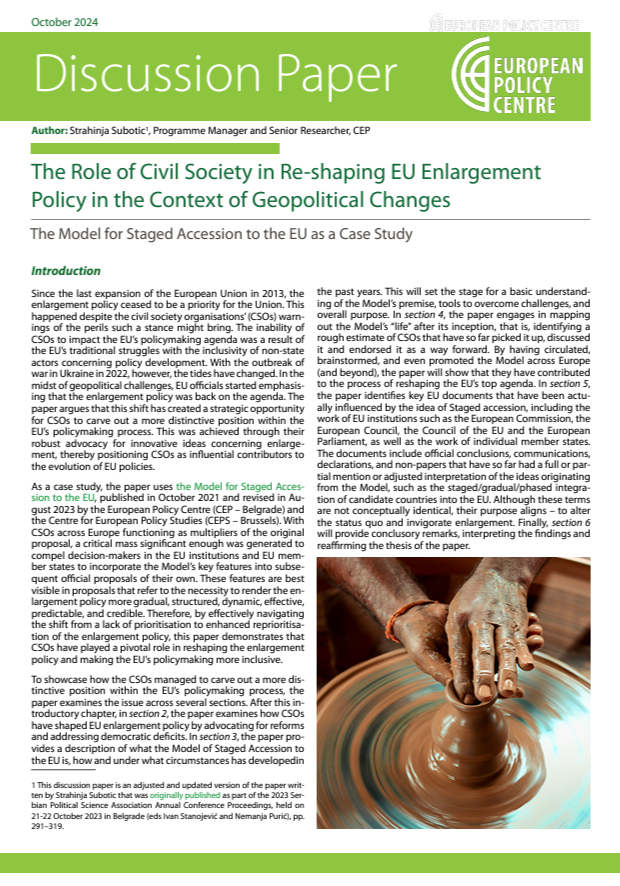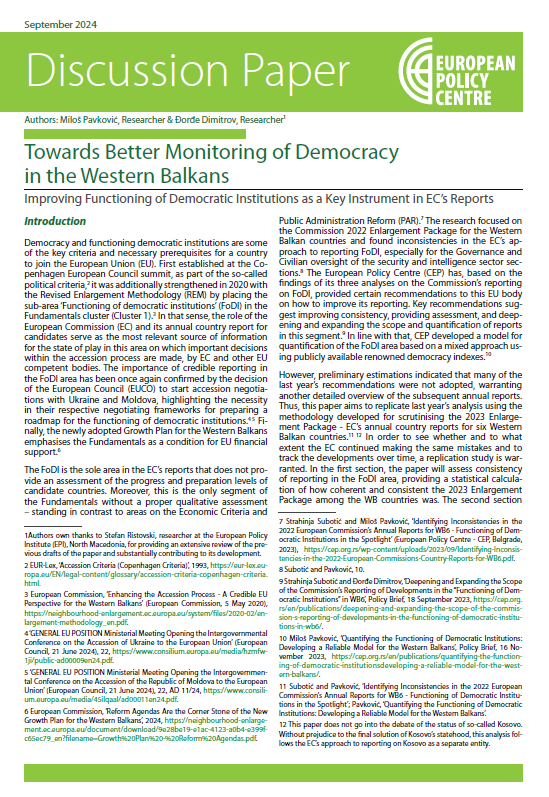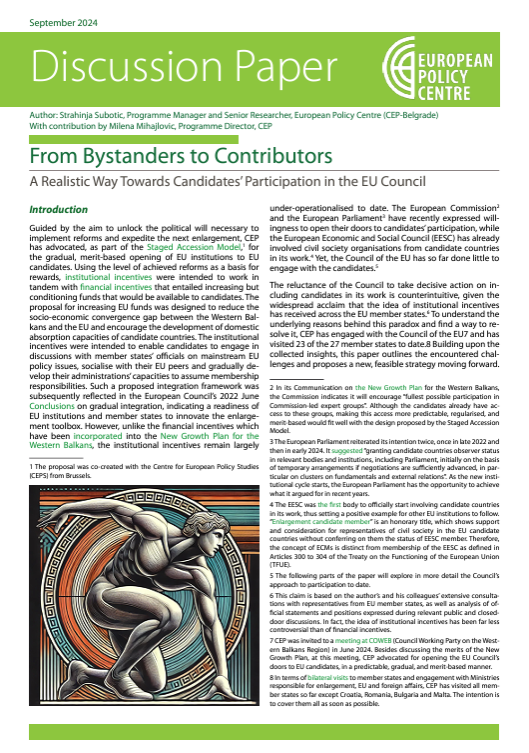Headquarters: Svetog Nauma 7, 11000
Office address: Đorđa Vajferta 13, 11000
Phone:: +381 11 4529 323
On January 31, 2003, the then president of the European Commission, Romano Prodi, visited Tirana and held a speech in the Albanian parliament, declaring the opening of negotiations for signing the Stabilization and Association Agreement between the EU and Albania. Almost 20 years later, on July 19, 2022, Albania officially started the accession negotiations.
During these two decades, the country has slowly gone through all the classic steps foreseen for the Western Balkans in their membership perspective: from signing the SAA, to achieving the candidate status and fulfilling priorities for starting the accession talks. The main challenges in this long journey have mostly been domestic, including weak institutional capacities and a lack of a political culture of compromise and cooperation. However, especially in the recent decade, an additional obstacle has been added: the unpopularity of the enlargement policy in the EU.
In October 2013, the European Commission recommended granting Albania the candidate status. The Council of December 2013 failed to take a decision, postponing it for June 2014, with at least five member states expressing scepticism. In October 2018, again, the European Commission recommended opening accession negotiations with Albania, yet, amidst a new methodology process, Bulgarian veto, etc., member states did not take a decision and negotiations started only four years later, in July 2022.
The unpredictability and the continuous decrease of credibility of the process require a thorough discussion and debate about new ideas on how to improve the enlargement policy and progress of aspiring countries. Any further deterioration of the perspective based on uncertainties coming from member states might trigger what Albanian Prime Minister Edi Rama called the “patience fatigue”, reflecting a loss of interest in the membership perspective and lowering EU influence in the region, making the latter even more exposed to instability and other global actors’ agendas. In this context, the aim of this paper is to explore the Staged accession model and its relevance and practical applicability in the Albanian case.
First, there is a focused discussion on the shortcomings of enlargement policy and conditionality, by going through the revised methodology as well and what it brings to the table. Second, the paper critically introduces the Staged accession model and its ramifications in the Albanian context, especially in terms of potential obstacles and opportunities. To conclude, the study assumes a more empirical approach by assessing the applicability of the model, based on the Albania’s preparedness indicators provided by the European Commission’s reports, with the aim of analysing the specific dynamic of the country in terms of stages.
This paper is part of the National Issue Paper Series developed within the project “Support for further development of the model of the Western Balkans staged accession to the European Union“ implemented by the European Policy Centre (CEP – Belgrade) and the Centre for European Policy Studies (CEPS – Brussels). The Project is funded by the Open Society Foundations (OSF).
Author of this publication is Gentian Elezi, Independent expert from Tirana.


